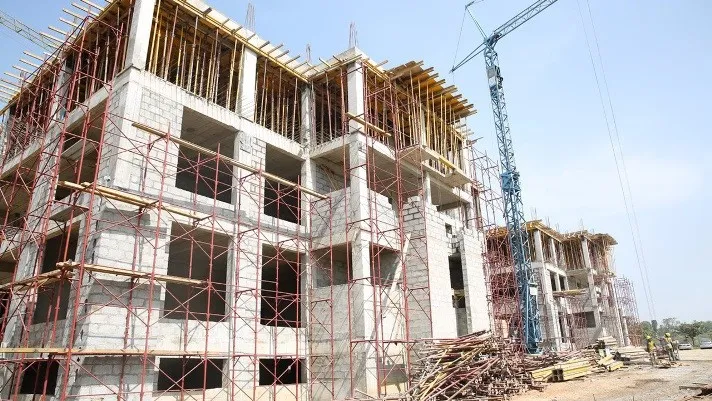The senator representing Ondo South in the National Assembly, Jimoh Ibrahim, on Saturday tasked the Nigerian government to create food vouchers for poor Nigerians as part of efforts to address the widespread hunger in the nation.
The senator made this known in his remarks at the Nigerian delegation’s press briefing on the sidelines of the IMF/World Bank meetings in Washington DC.
The briefing was attended by the governor of Nigeria’s Central Bank, Olayemi Cardoso, the minister of finance, Wale Edun, and other government officials.
Mr Ibrahim said the food vouchers will be more effective in addressing the hunger crisis ravaging the nation than the cash transfer initiative being implemented by the government.
The move, he argued, would help “remove 20 million Nigerians suffering from hunger” and food insecurity.
“This is a harmonious policy, and when it’s done, it will help the government to have a direct impact on those who are affected by poverty and food insecurity,” he said.
Hunger
The Nigerian government led by President Bola Tinubu has, in recent months, implemented reforms it says were aimed at recalibrating the economy and fixing structural distortions.
Nigerians need credible journalism. Help us report it.
Support journalism driven by facts, created by Nigerians for Nigerians. Our thorough, researched reporting relies on the support of readers like you.
Help us maintain free and accessible news for all with a small donation.
Every contribution guarantees that we can keep delivering important stories —no paywalls, just quality journalism.
The government recently removed subsidies on petrol and unified the various windows of the foreign exchange market. There have equally been reforms in the nation’s power sector, with an attendant increase in electricity tariff.
The IMF and World Bank have for several years called for these key reforms as a means to engender growth and drive economic progress.
But these policies have caused pains for many Nigerians amid elevated prices, reduced purchasing power, and endemic poverty.
Nigeria’s annual inflation rate rose in September after recording a two-month consecutive fall.
The headline inflation rate was 32.70 per cent relative to the August 2024 headline inflation rate of 32.15 per cent, according to the National Bureau of Statistics (NBS).
According to the NBS, the food inflation rate in September 2024 was 37.77 per cent, 7.13 percentage points higher than the rate recorded in September 2023 (30.64 per cent).
The NBS said the rise in food inflation on a year-on-year basis was caused by increases in prices of the following items, guinea corn, rice, maize grains, beans, etc (bread and cereals class), yam, water yam, cassava tuber, etc (potatoes, yam & other tubers class), beer (local and foreign), Lipton, milo, bournvita, etc (coffee, tea & cocoa class) and vegetable oil, palm oil, etc (oil & fats class).
Intervention
Mr Ibrahim on Saturday said the food voucher initiative would curb the corruption that often taints palliative programmes because it eliminates the aspect of cash management.
“It’s very important because when you don’t solve the problem of food and hunger, then you are looking for crisis. This is why we are saying that the economic policy of the central bank and the ministry of finance should be harmonised, and then we can have a clear account to print vouchers for food.”
In August, a nationwide protest against bad governance was staged across states of the federation. The protest, with hashtag #EndBadGovernanceinNigeria, was staged to call the Federal Government’s attention to the economic hardship facing Nigerians.
Earlier on Friday, the International Monetary Fund (IMF) urged the Nigerian government to direct savings realised from subsidy removal to the poor and vulnerable population in the society.
READ ALSO: The hunger protests and Nigerias rising season of discontent, By Cheta Nwanze
Abebe Selassie, the head of the IMF’s African Department, made this known at the regional economic outlook for sub-Saharan Africa press conference.
“Some of the savings from the fuel subsidy reforms and fx subsidy being removed should now be directed to help cushion the effects on the most vulnerable households,” Mr Selassie said.
Support PREMIUM TIMES' journalism of integrity and credibility
At Premium Times, we firmly believe in the importance of high-quality journalism. Recognizing that not everyone can afford costly news subscriptions, we are dedicated to delivering meticulously researched, fact-checked news that remains freely accessible to all.
Whether you turn to Premium Times for daily updates, in-depth investigations into pressing national issues, or entertaining trending stories, we value your readership.
It’s essential to acknowledge that news production incurs expenses, and we take pride in never placing our stories behind a prohibitive paywall.
Would you consider supporting us with a modest contribution on a monthly basis to help maintain our commitment to free, accessible news?
TEXT AD: Call Willie - +2348098788999

















 English (US) ·
English (US) ·